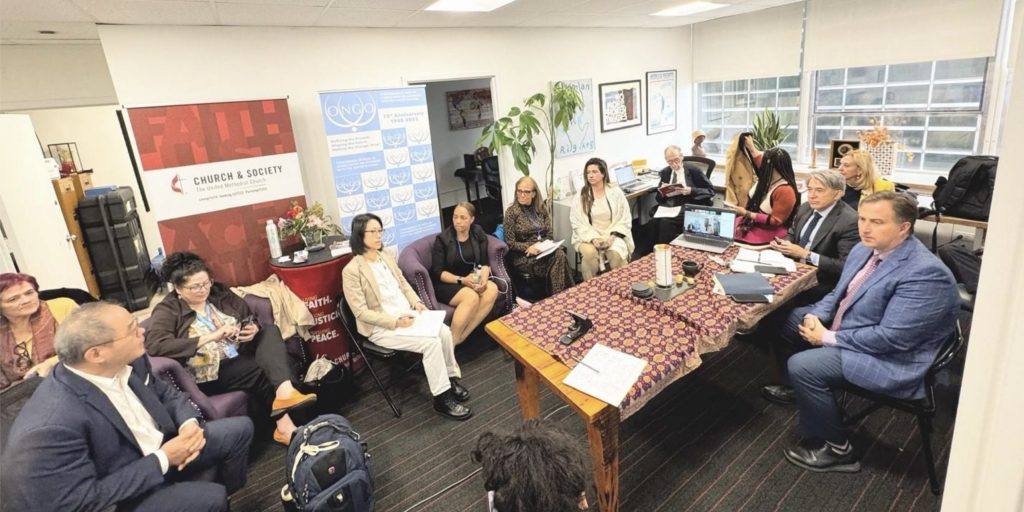
NGO access to and at the UN is also UN’s access to the voice, expertise and support of civil society to the multilateral body, CoNGO President asserted at a meeting called by the ECOSOC President
New York City, 7 April 2021 (CoNGO InfoNews) – The United Nations and non-governmental organizations are each the poorer without the other. Grassroots, national, regional and international diplomacy have benefited from UN and NGO consultation and collaboration in addressing wide-ranging issues and problems confronted by governments, peoples, and humanity’s shared habitat.
This is the gist of the presentation by Liberato Bautista at the February 1, 2021 joint meeting of the United Nations Economic and Social Council (ECOSOC) with the Chairs of its functional commissions and expert bodies. Bautista, the president of the Conference of Non-Governmental Organizations in Consultative Relationship with the United Nations, was invited to address the meeting by the ECOSOC President, Ambassador Munir Akram.
“It was a laudable gesture by Ambassador Akram to invite me to address the meeting, and calling me to speak in the middle of a crowded two-hour schedule, when all participants were still online to hear what the sole NGO representative had to say,” Bautista recollected.
“Engaging in dialogue and maintaining accessible lines of communication is critical to the consultative relation between NGOs and the UN System. NGO support for robust multilateralism entails access by NGOs to and at the UN, which in the same measure, also means UN’s access to the voice, expertise and support offered by civil society,” Bautista stated.
Bautista, addressing the ravages of the COVID-19 pandemic and how it has affected NGO access to and at the UN, asserted that NGOs, like CoNGO, “stand ready to secure together the public space so that inclusive, participatory and democratic institutions thrive and prosper” rather than curtailed and pushed back during the pandemic.
The challenges that lay ahead for both the UN and NGOs for which their consultation and collaboration are needed were laid bare by Bautista. “It is time that the multistakeholder actors of our collaboration, including us NGOs, are put to work to address this coronavirus pandemic and the intersecting pandemics resulting from climate change, from hunger and poverty, from forced migration, from racism and xenophobia, employing every principle and approach, not the least of which include whole-of-government and all-of-society.”
Advocating for robust consultation and collaboration between the UN and NGOs is at the core of CoNGO’s key aims and objectives. And addressing the ECOSOC at this meeting is not CoNGO’s first time. Before this February meeting this year, Bautista also addressed the briefing for civil society organized by the ECOSOC presidency of Norway on May 4, 2020.
At the May 2020 meeting, Bautista maintained that “policy-making in a time of pandemic must strengthen our resolve to work together to address underlying fundamental inequalities in our society that hinder the full realization of the SDGs. In this important task, a genuine engagement of civil society at the national and global levels is primordial.”

 Previous Post
Previous Post Next Post
Next Post


